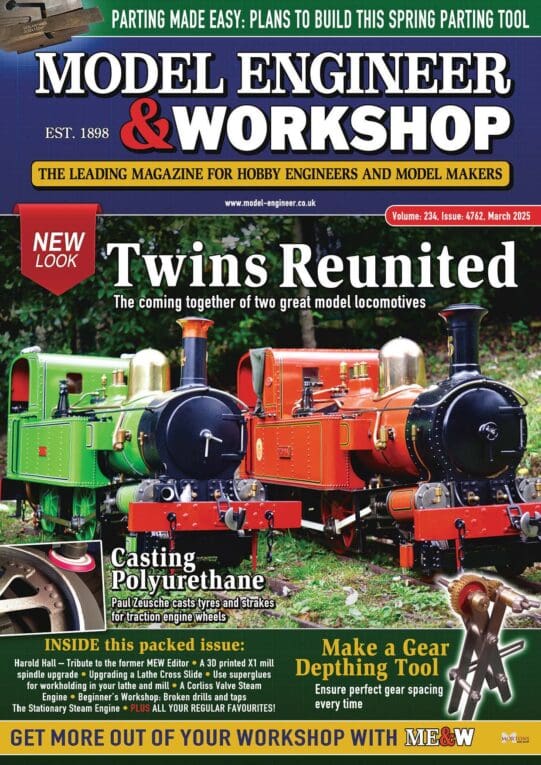Ordering the right material…
Ordering the right material…
- This topic has 12 replies, 10 voices, and was last updated 4 April 2024 at 12:06 by
Anonymous.
Viewing 13 posts - 1 through 13 (of 13 total)
Viewing 13 posts - 1 through 13 (of 13 total)
- Please log in to reply to this topic. Registering is free and easy using the links on the menu at the top of this page.
Latest Replies
Viewing 25 topics - 1 through 25 (of 25 total)
-
- Topic
- Voices
- Last Post
-
- Discussion on the Future Direction of Model Engineer and Workshop 1 2 … 10 11
- 68
- 21 February 2025 at 07:03
Viewing 25 topics - 1 through 25 (of 25 total)
Latest Issues
Newsletter Sign-up
Latest Replies
- Lathe help information
- End mill sharpening fixture
- New Member – Unimat 3 Owner
- Digital Log In
- Kelsey Media buys Mortons titles
- New member – hobby engineer
- New Myford Owner with Problems!!!
- VERY delicate rust removal
- NEW LOOK – Model Engineer & Workshop
- Discussion on the Future Direction of Model Engineer and Workshop





